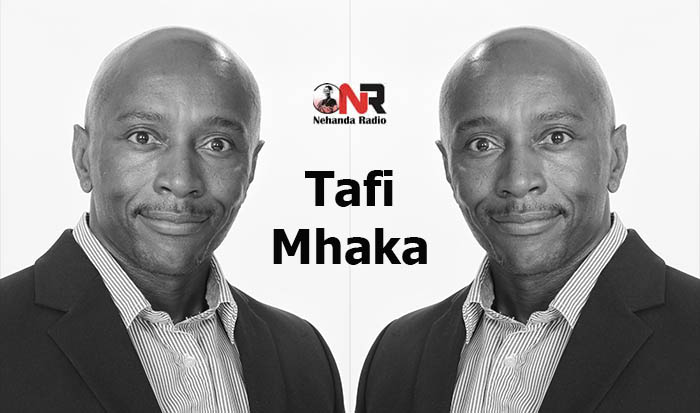Tafi Mhaka: Amid COVID-19, South Africa is scrambling to dismantle ‘apartheid’ in a hurry
By Tafi Mhaka
As a potentially long, extensive and brutal battle against COVID-19 heats up in South Africa, it is clear that to contain the spread of the Coronavirus, Africa’s most developed nation must confront its unequal past and present economic and social realities by establishing an immediate, unprecedented focus on rectifying the abysmal lives of people residing in neglected shantytowns and townships.

Without a shadow of doubt, South Africa must dismantle the profoundly unjust economic and social remnants of the apartheid state. Amid a slow, growing outbreak of COVID-19, South Africa has recorded just 2028 infections and 25 deaths so far, but the virus is yet to infiltrate large, underdeveloped and mainly black townships on a wide scale.
Nevertheless, plans are afoot to enforce mass evacuations in townships located in the Western Cape, Gauteng, the Eastern Cape and KwaZulu-Natal in a grand effort to “decongest” areas that could all in likelihood spark a formidable, undesirable spike in infections.
Already, Gauteng Premier David Makhura and Health MEC Bandile Masuku have led a testing drive in Alexandra Township in Johannesburg. Yet, the last time black South African South Africans were forcibly removed from their homes and resettled in a different area, it was in the last century, under a notoriously repressive 1913 Native Land Act passed by a racist, white settler government.
Today, 107 years later, the scourge of structural inequality and spatial injustice has returned, no longer simply an oppressive colonial construct, but a most ubiquitous and dreadful mainstream, capitalist-leaning post-independence reality.
Although South Africa has been largely applauded for its response to the spread of the coronavirus, the pandemic’s impending impact on the economy and society at large may actually bring into sharp focus a devastating failure to provide basic but essential services to a majority of black South Africans.
Despite President Cyril Ramaphosa setting up a charitable fund that big business can contribute to and establishing economic interventions to help cushion businesses and workers laid off as a result of a national lockdown, COVID-19 will have a severe impact on ordinary, unemployed South Africans.
Indeed, it is the poor that have borne the brunt of a stalled South African dream. In March, Human Settlements, Water and Sanitation Minister Lindiwe Sisulu said her department procured 41 000 water tanks for distribution to needy communities.
Still, it must be said: how were these communities surviving before the threat of COVID-19 had landed on South Africa’s shores and demanded the launch of critical and urgent social interventions?
In 2018, according to one report, South Africa recorded 237 service delivery protests against municipalities. Often driven by a communal sense of severe deprivation and social isolation, the fiery and often violent protests were premised against a lack of employment opportunities, housing, water and decent sanitation facilities: job opportunities and services many have never consistently enjoyed since South Africa became a democratic state in 1994.
For example: in 2019, Johannesburg had a backlog of 300 000 houses. To add to that logjam, the unemployment rate, at 29.1%, chiefly affects youths and residents of townships and informal settlements: the have-nots.
It is they who don’t have formal jobs and live on the cold, inhospitable fringes of dilapidated communities. It is the hardworking street vendors and self-employed persons that sell everything from cell phone accessories to clothes for a living who must bear the heavy impact of a national shutdown in more ways than one.
Confined to informal settlements, where many suffer an undignified presence on a daily basis, at present they cannot eke out a living. Further, they can’t access payouts from the Unemployment Insurance Fund that furloughed workers will have access to. So without substantial savings or a financial parachute to latch onto, many will certainly fall into very hard times.
What’s more, should they become infected with the Coronavirus, it is the poor that will have to make do with an under resourced, overburdened public health system. Soweto’s Chris Hani Baragwanath Hospital, the country’s 3rd largest hospital, for instance, has approximately 3200 beds for around 1.5 million surrounding residents.
Yet capacity is not the only problem: delivering decent health services is. In 2016, 144 patients died in what is known as the Life Healthcare Esidimeni scandal. This after the Gauteng department of Health terminated an outsourced care contract with Life Esidimeni, a private hospital, to save money and give effect to a policy to “deinstitutionalise” psychiatric patients.
The scandal evolved as a reprehensible dereliction of duty and a gross violation of human rights that is totally incongruous with the social responsibilities of modern governance.
Additionally, for millions living in townships, a heavy-handed response to enforcing the lockdown has exposed an omnipresent, ominous truth for many: police brutality.
In late March, while enforcing regulations against alcohol consumption, a Metro Police officer and a private security guard were arrested for shooting to death Sibusiso Amos in his veranda at home.
Worse still, the police have allegedly killed 8 men since the beginning of the lockdown. Police brutality is not only a widespread challenge, but also a festering, agonising legacy of apartheid. South Africans reportedly lodged 42 365 criminal complaints against the police between April 2012 and March 2019. Amongst others, the reports included allegations of rape, torture, assault and murder.
Now, with COVID-19 set to push social, economic and health services to a chillingly strained limit, South Africa can no longer afford to pretend the present set-up is working for poor, vulnerable and underprivileged members of society.
Everything, from the manner in which basic services and healthcare are delivered, to the way in which jobs and business opportunities for millions of previously disadvantaged youths are created, will have to be revisited and reworked, all it seems, in a hurry.
Tafi Mhaka is a Johannesburg-based writer and commentator. His debut novel, Mutserendende: The African in Us, will be published in 2020.






